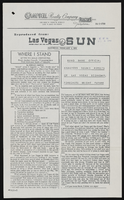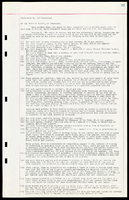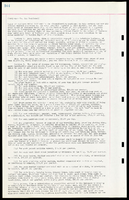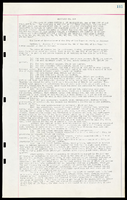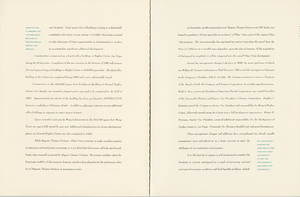Search the Special Collections and Archives Portal
Search Results
Rob Schlegel oral history interviews
Identifier
Abstract
Oral history interviews with Rob Schlegel conducted by Dennis McBride on various dates in March and April of 1998 for the Las Vegas Gay, Lesbian, Bisexual and Transgender Archives Oral History Project. In the interviews, Schlegel recalls his early life in Port Angeles, Washington, his conservative Baptist upbringing, and his early experiences with literature. Schlegel then discusses working with newspaper publications in high school and college, understanding his sexuality during college, his first gay sexual experience, and his first trip to Las Vegas, Nevada. He recalls working with Robert Lloyd "Bob" Brown at the
Archival Collection
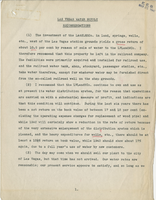
Draft report, Las Vegas water supply recommendations, March 31, 1942
Date
Archival Collection
Description
Details of twelve recommendations for the railroad to pursue with regards to water in the Las Vegas area. Drafted March 25, 1942, E. E. Bennett's penciled notes added March 31, 1942. Report has an "E.E.B. MAR 31 1942" date stamp.
Text
Maurice Halfon Behar Papers
Identifier
Abstract
Collection is comprised of photographs, correspondence, and other documents created by Holocaust survivor Maurice Halfon Behar and his family from the 1920s to 2015. The photographs depict the Behar, Bally, and Halfon families from the 1920s to the 1950s. They show Maurice Behar as a child with his mother in France, and his parents' families in Istanbul, Turkey, and Biarritz, France. The documents and correspondence to and from the family of Maurice Halfon Behar regard reparations from the French and German governments for the displacement of the Halfon family during the German occupation of France.
Archival Collection


